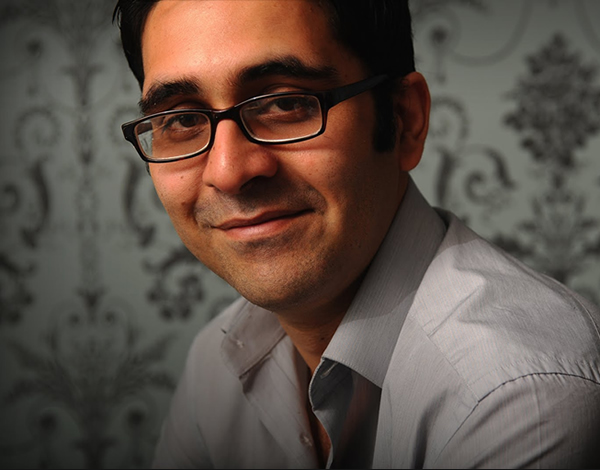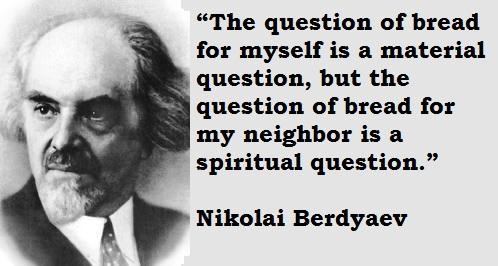- Mao Zedong, Talk with African friends, 8th August 1963.
..............................
- Umair Haque
...............................
KIM IL SUNG AGAINST THE INTERNATIONAL MONETARY FUND
A self-reliant national economy is the foundation of an independent state. Only when they build a self-reliant national economy can the developing countries consolidate their political independence, and save their people from starvation and poverty.
Many developing countries in Africa are undergoing difficulties in building independent national economies, owing to the neocolonialist policy of the imperialists. The imperialists are resorting to crafty tricks to dominate these countries again by using “aid” or “cooperation” as a trap to impose neocolonialism. At the summit of the seven Western industrialized countries held in Japan last year, the leaders of the capitalist countries asserted that developing countries could receive “aid” only through the International Monetary Fund. This clearly revealed the aggressive, plundering nature of the imperialists who are attempting to recolonize developing countries. The mission of the IMF is outwardly international cooperation in monetary affairs, the stabilization of currency and well-balanced development of international trade. But, as a matter of fact, it is used as a tool for economic penetration of member states by the US imperialists and the Western capitalist countries. If developing countries borrow money from the IMF, they will be forced to act as dictated by the US imperialists and the Western capitalist countries, which control this organization at their whim.
I have met many heads of state from Africa. They all say that they are compelled to borrow money from the IMF because they are suffering from economic difficulties. In fact, for a country to borrow money from the IMF is as dangerous as falling into the trap of domination. If a poor man borrows money and food grain from a rich man in order to live, he will become a servant of the latter when he fails to repay the debt. The same is true of a country. If a developing country borrows money from the IMF and does not repay the debt afterwards, it will get deeper into debt owing to the ever-increasing interest, and at last will become subjugated again by the imperialists.
The lessons of history show that the imperialists offer neither political independence to their colonies nor self-reliant economies to developing countries. Developing countries must build independent national economies by their own efforts instead of trying to benefit from the IMF.
— Kim Il Sung, Works, vol. 40, Foreign Languages Publishing House, Pyongyang 1995, pp. 241-242.
..................................
Pieper on the modern worker as distinct from the proletarian:
"Here and in all that follows 'worker' must not be taken as defining an occupation, as in statistical works; it is not synonymous with 'proletarian' - although the fact that the words are interchangeable is significant. On the contrary, 'worker' will be used in an anthropological sense; it implies a whole conception of 'man'. Ernst Niekisch was using the word 'worker' in this sense when he spoke of the 'worker' as an 'imperial figure'; and Ernst Junger uses the same term to outline the ideal image that, according to him has already begun to mould the man of the future."
On the anti-bourgeois nature of true philosophy:
"It is at this point that the thoroughly 'unbourgeois' character of philosophy emerges - if I may for a moment, and without an altogether good conscience, make use of a terminology that has become all too common. Yet wonder really is unbourgeois. For what do we mean by saying, in a spiritual sense, that something is bourgeois? Above all, in the first place, that a man accepts his environment defined as it is by the immediate needs of life, so completely and finally that things happening cannot any longer become transparent; the great, wide, not to say deep, world which is at first sight invisible, the world of essences and universals, is not even suspected; nothing wonderful ever happens in this world, and wonder itself is unknown or lost. The narrow insensitive mind, that has become narrow through being insensitive, takes everything for granted."
- Josef Pieper, 'Leisure: The Basis of Culture'
.........................................
Us Kimilsungists-Kimjongilists believe that the road to socialism will reflect the particular characteristics of different nations and geo-political regions. We do not believe that there is a singular formula or road towards socialism that can be mimicked and implemented. Rather, we contend that each revolutionary movement must originate from the popular masses, for the popular masses, under their own specific material, cultural, and distinct conditions. Although we might hold reservations about specific aspects of revolutionary movements, we also understand that the road to revolution is a dialectical process of experimentation, self-criticism, and anti-imperialism. We, therefore, uphold the right of the popular masses of each respective nation, to fight for socialism in their own “style.”
“The popular masses are the masters of the revolutionary movement. It is therefore, the tasks of the party to carry out the will of the masses in accordance with the principles elucidated by the Juche Idea; that mankind are social beings with social attributes namely Independence, Creativity, and Consciousness.”
“The Kimilsungist-Kimjongilist programme applies the theory of the “mass-line” otherwise known as “vanguardism,” through the prism of the Juche Idea, in order to derive at both a material and social solution to the material and social problems facing the masses.”
- Party for Juche Socialism
...........................
If you have the capacity to tremble with indignation every time that an injustice is committed in the world, then we are comrades.
- Che Guevara
..........................
“The bourgeois may be an extreme conservative or an extreme revolutionary, but in both cases he is chained to the visible world and knows no spiritual freedom...While he makes hell on earth, the bourgeois pretends to be preparing a future earthly paradise.”
- Nikolai Berdyaev
.......................................
Radical social nationalism among young Japanese army officers in the inter-war era:
"Among younger officers, social criticism and even nationalism were dissolved into a fantastic heroic ideology, which was more or less a return to the spirit of Oriental feudalism. Feudalism in the Orient took more care of the community members' rights and honors than the more hierarchical form of feudalism in Europe, but the two are similar in their lack of understanding for and appreciation of business methods and arguments. Moreover, the large peasant element among the officers sympathized readily with the peasantry, hard hit by the world economic crisis, instead of with industry and banking capital. Certain groups of the army, therefore, lent an ear to anticapitalist sounding agitation, though it was not socialistic or communistic so much as an echo of bygone agrarian feudalism."
- Alfred Vagts, 'A History of Militarism'
.........................................
In a revolution the enemy classes must be defeated, the state power that defends them must be overthrown and that the “will of the majority of the people” is insufficient to bring this about. What is needed is the strength of the revolutionary classes that will and can fight, a strength which at the decisive moment and place will crush the enemy’s strength.
How often has it happened during revolutions that the small but well-organised, armed and centralised power of the ruling classes, the landowners and the bourgeoisie, has crushed piecemeal the power of the “majority of the people”, who were poorly organised, poorly armed and lacked unity.
- V. I. Lenin
How often has it happened during revolutions that the small but well-organised, armed and centralised power of the ruling classes, the landowners and the bourgeoisie, has crushed piecemeal the power of the “majority of the people”, who were poorly organised, poorly armed and lacked unity.
- V. I. Lenin














No comments:
Post a Comment